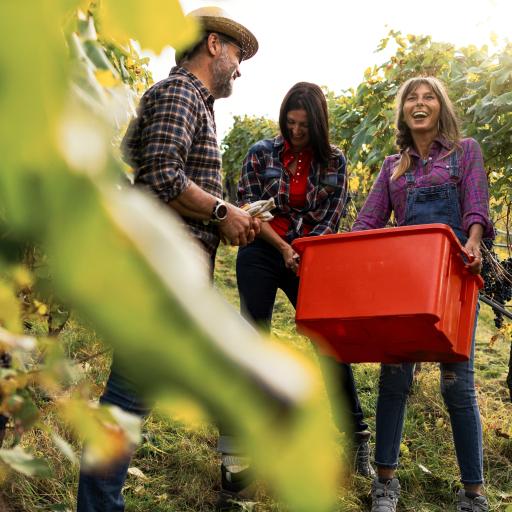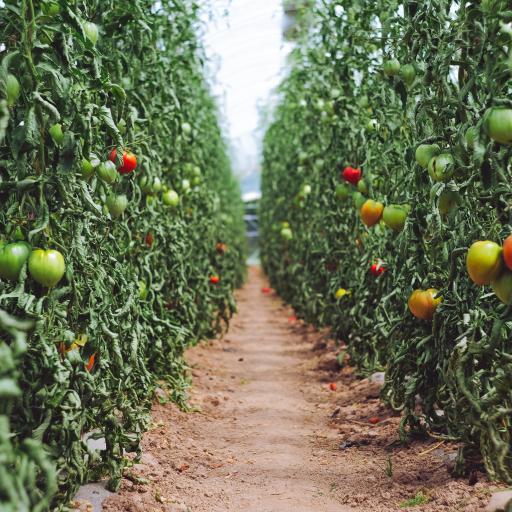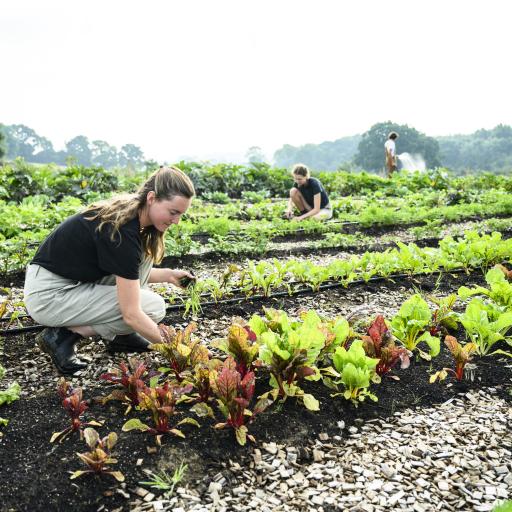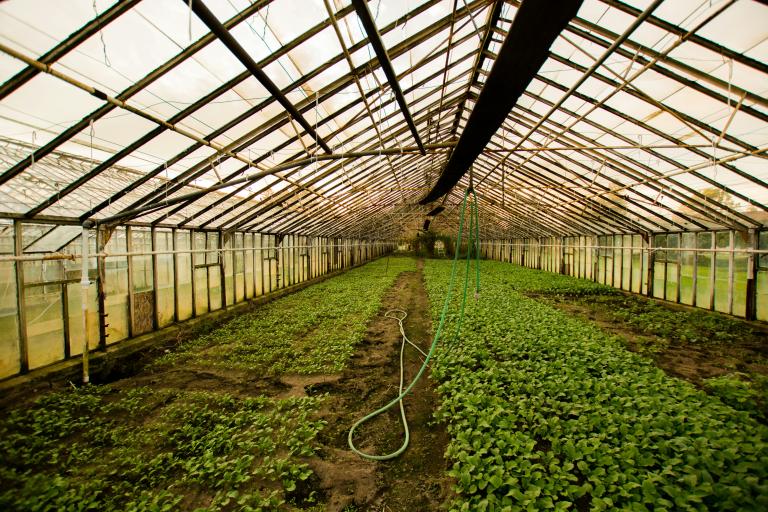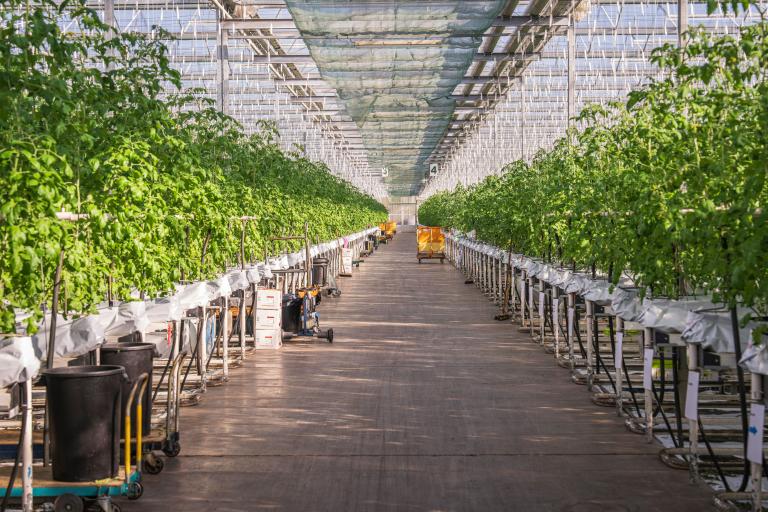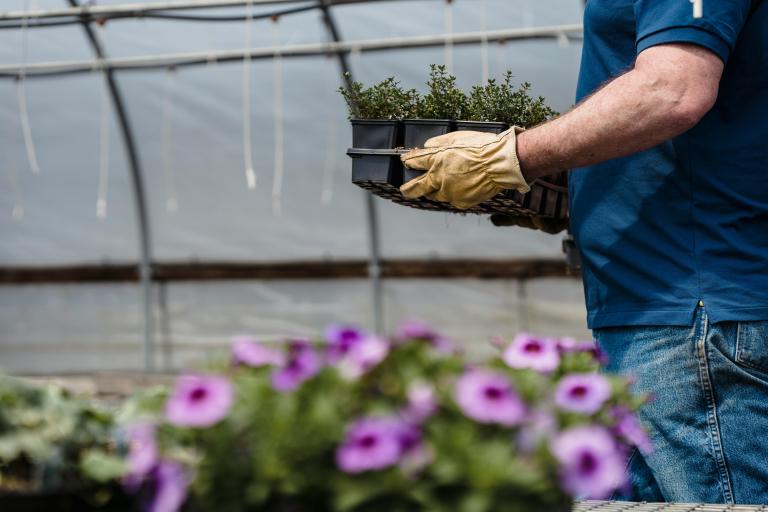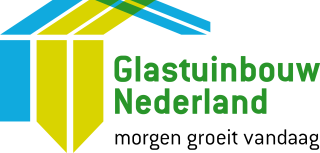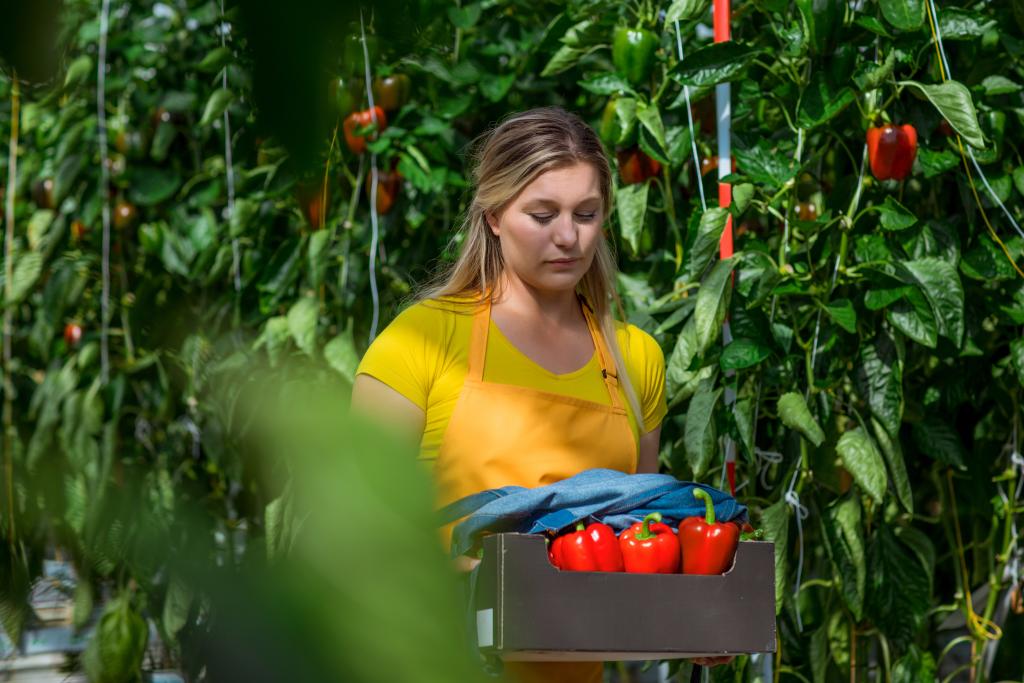
The horticultural sector aims to be energy-neutral by 2040. Pesticides must be replaced by biological control agents and techniques. Additional effort is also needed to operate fully circular by 2050. In our efforts to contribute to those challenges we work closely with the AgTech Institute of TU Delft, the Erasmus Horticulture and Food Centre and the Institute for Environmental Sciences (CML) of Leiden University.
Circular business practices can be achieved by reusing organic raw materials and waste. This includes growing on sustainable substrates. Or finding new applications for plant residues. It also involves reusing water, and reusing or recycling packaging materials, greenhouse components, and technical installations. The use of pesticides can be reduced through the breeding of disease-resistant crops and cultivation methods that enhance plant resilience.
Impact
The horticultural sector has a strong, internationally oriented supply chain. It is leading in sustainable horticultural applications. Strengthening this frontrunner position makes sustainable horticultural solutions globally accessible and strengthens the Dutch economy. By becoming more sustainable, the sector can contribute to the transition of the food system toward a predominantly plant-based diet. At the same time it offers promising opportunities for greener cities and greater biodiversity.
Working on solutions
INTERVIEW
Hoe data en deep learning de tuinbouw verduurzamen
Eric van Heck is professor of Informatie Management en Markten aan de Rotterdam School of Management (RSM), Erasmus University Rotterdam.

